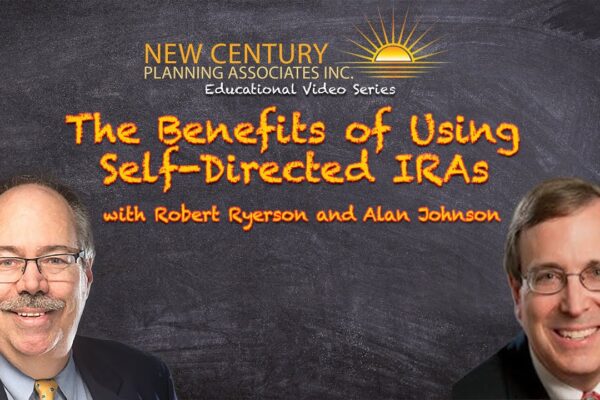5 Reasons Why It’s Helpful to Keep Working in Retirement
In large part due to inflation and market volatility, the retirement landscape in the United States has changed considerably in the last year or two. According to Franklin Templeton Investments’ 2023 Voice of the American Worker Survey, 73 percent of workers feel that their retirement plans are being threatened by inflation, while 63 percent believe the current economic climate will prevent them from retiring when anticipated. Respondents, on average, planned to delay retirement by about three years, from age 62 to age 65.
While these challenging economic conditions are concerning for those nearing retirement, it’s important for younger workers to keep in mind that inflation is cyclical and that historically, they’ll eventually see marked improvements in the performance of their investment portfolios.
With that said, even those with the ability to retire early should consider working at least part-time for a few more years. Here’s why.
 1. Your Portfolio Can Continue to Grow
1. Your Portfolio Can Continue to Grow
One of the biggest advantages to working in retirement is that you can earn supplemental income to cover day-to-day expenses. By working part-time hours, you can potentially make your monthly mortgage payments if your home isn’t already paid off or cover expenses such as groceries, gas, and utilities. This allows you to minimize the amount of money you withdraw from your retirement investment portfolio which, in turn, allows your portfolio to generate more money over a longer period of time.
2. Delaying Social Security
More importantly, continuing to work in retirement allows you to delay Social Security payments. The longer you delay these payments the more you’re able to collect over the course of your lifetime. Importantly, you will receive an 8% boost in your benefits for every year that you wait to begin your benefits. These are called delayed retirement credits, and are available from age 62 through 70, at which they stop. Since we cannot yet get 8% guaranteed returns anywhere at this time, this is an attractive incentive to possibly delay your benefits a bit–perhaps at least until you reach your full retirement age (FRA). You can collect Social Security payments before the full retirement age which, at present, is 67 years old, but you won’t receive the maximum monthly payment. Annual benefits could be reduced by as much as 30 percent, if you begin the payments at age 62.
If you’re due to earn $3,000 in Social Security payments at full retirement age but instead begin collecting five years early at age 62, you would only receive $2,100, or 70 percent, each month. However, if you work part-time and earn income to delay Social Security payments until age 70 (the last year in which you can begin collecting), you would receive $3,720 a month until your death. That’s a 77 percent monthly increase over what you would have collected at age 62.
It’s worth noting, however, that Social Security benefits are taxable when you’re still working in early retirement, and very often even after you fully retire. The federal government deducts $1 from Social Security payments for every $2 earned on annual incomes of more than $21,240 prior to the full retirement age. It takes $1 for every $3 earned after $56,520 at age 67. At age 67 onward, you can earn as much as possible without any penalties on your Social Security.
 3. A Sense of Purpose
3. A Sense of Purpose
While most people look forward to retirement, many find that it isn’t as enjoyable as they expected. They might miss regular interactions in the office or on the job with people they’ve known for years, or find it tough to enjoy day-to-day leisure activities without a true goal or purpose. Working at a part-time job not only helps out financially, but can also help some people reclaim that sense of purpose they had as productive, full-time-working members of society.
Francis Nelson Beebe retired following a 30-year career at Procter & Gamble and was out of work for seven years while playing nearly 200 rounds of golf each year. Then he had an epiphany. In a 2021 story for Barron’s, Beebe told the financial publication that he was on the course one day when he simply realized he couldn’t be happy doing this for the rest of his life.
So, Beebe, a graduate of the Cordon Bleu culinary program, launched his own business, Mr. Nelson’s Cookies. The 73-year-old baker works five days a week making artisanal chocolate chip cookies and sells them online and at farmer’s markets. He told Barron’s that he feels 45.
4. Improve Overall Health and Well-Being
According to a National Academies of Sciences, Engineering, and Medicine report, more than one-third of adults 45 years and older feel lonely. This is particularly concerning considering that social isolation significantly increases the risk of premature death from all causes and may be just as unhealthy as smoking and physical inactivity, according to the CDC. The CDC also suggests that social isolation is linked to an increased risk of dementia.
Working, even part-time, or volunteering in retirement not only gives older adults a sense of purpose but allows them to interact with others on a regular basis and potentially avoid feelings of isolation or loneliness. Since 1938, the Harvard Study of Adult Development has tracked generations of families and found that those who maintained work relationships or made new ones in retirement were happier than those who didn’t.
 5. Better Health Insurance
5. Better Health Insurance
For the most part, private insurance offers more comprehensive coverage than Medicare. In addition, Medicare doesn’t cover dependents and typically requires a monthly premium. By continuing to work, you might take advantage of private health insurance as part of an employee benefits package.
Author
Robert Ryerson
Although Robert M. Ryerson completed all the necessary requirements to earn bachelor of arts degrees in both English and economics at Rutgers University, college policy at the time prohibited the issuance of dual degrees. As a result, he graduated from Rutgers with a single bachelor of arts in economics before finding employment as a stockbroker with Shearson Lehman American Express in New York City 1984. Robert M. Ryerson has since established himself as a respected estate administrator and legacy planner. In addition to his economics degree from Rutgers, Mr. Ryerson holds several professional designations including Retirement Income Certified Professional (RICP)®; Certified In Long Term Care (CLTC)®; Certified Financial Fiduciary (CFF)®, and Certified Identity Theft Risk Magenament Specialist (CITRMS)®. He has shared his knowledge on the subject of identity theft as the author of the book What’s The Deal With Identity Theft?: A Plain-English Look at Our Fastest Growing Crime. He has also covered identity theft issues directly for students as the instructor of the adult education course Understanding Identity Theft: Our Fastest Growing Crime.






